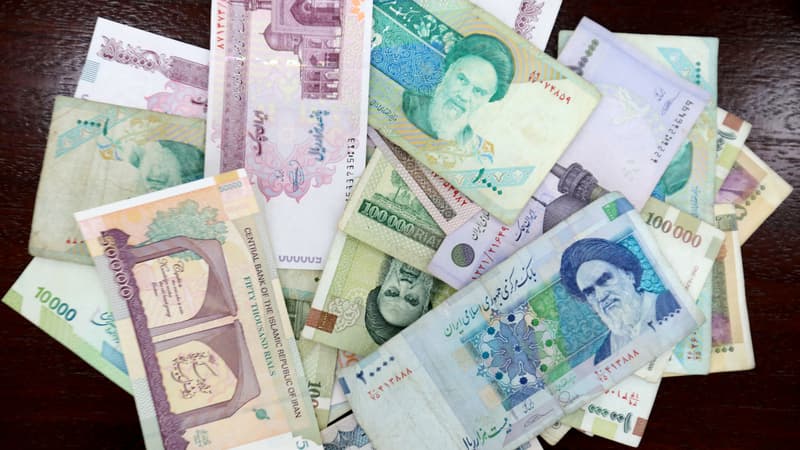Iran denounced this Sunday as “unjustifiable” on Sunday the restoration of UN sanctions, ten years after their uprising, in full disagreement with Westerners in their nuclear program.
The Iranian national currency, the Rial, has reached a historical minimum against the dollar after the announcement of the sanctions, according to the currency sites: a dollar was exchanged, according to the informal rate in the black market, with around 1.1 million rials, against around 900,000 in early August.
Resting from an embargo on economic measures, the heavy sanctions were restored on Saturday after a green light of the Security Council after the failure of the negotiations. But the European trio, France and the United Kingdom, as well as the United States assured that this did not mark the end of diplomacy.
They will promise a “firm answer”
Iran’s nuclear program for a long time poisons relations with Westerners that, with Israel, suspect that Tehran wants to acquire the atomic bomb. Iran denies and defends his right to civil nuclear.
“Any action aimed at violating the interests and rights of the people of Iran will be the subject of a firm and appropriate response,” said Iran’s Ministry of Foreign Affairs, the day after the removal of Tehran from their ambassadors in the three European countries. The Ministry denounced the “unjustifiable” return of illegal sanctions. “
In the capital of Téhéran, several people expressed concern about the worsening of the economic situation. “We will be ruined. It is possible that people can no longer live as they do today,” said the company Nasim, a 56 -year -old researcher. “Even before the increase in the dollar, prices increased. Taxis meat, living conditions were already difficult,” said Helia, a 33 -year -old graphic designer.
“Illegal”
According to the International Atomic Energy Agency (AIEA), Iran is the only country not equipped with nuclear weapons to enrich uranium at a high level (60%), near the 90% technical threshold necessary for the manufacture of the atomic bomb.
In 2015, France, the United Kingdom, Germany, the United States, Russia and China had concluded with Iran an agreement that provided Iranian nuclear activities in exchange for a progressive survey of international sanctions. But the United States, under Donald Trump’s first term, retired in 2018 by restoring his own sanctions that barely affect the Iranian economy.
In response, Iran has been released from certain commitments, in particular in the enrichment of uranium, limited to 3.67% by the 2015 agreement. In one of the clauses of this pact, Iran declares that if the sanctions were restored in all or part, it would consider this as a reason to stop executing their commitments as a whole or part.
But London, Paris and Berlin (Group E3), accusing Tehran of not fulfilling their commitments, caused the “Snapback” mechanism called so that it allows within 30 days of restoring the sanctions raised in 2015. In return, it accuses the European trio of not having respected the 2015 agreement because it did not prevent the return of US sanctions. And, therefore, he judges “illegal” the trigger for “snapback”. Russia and China oppose these sanctions.
Source: BFM TV


